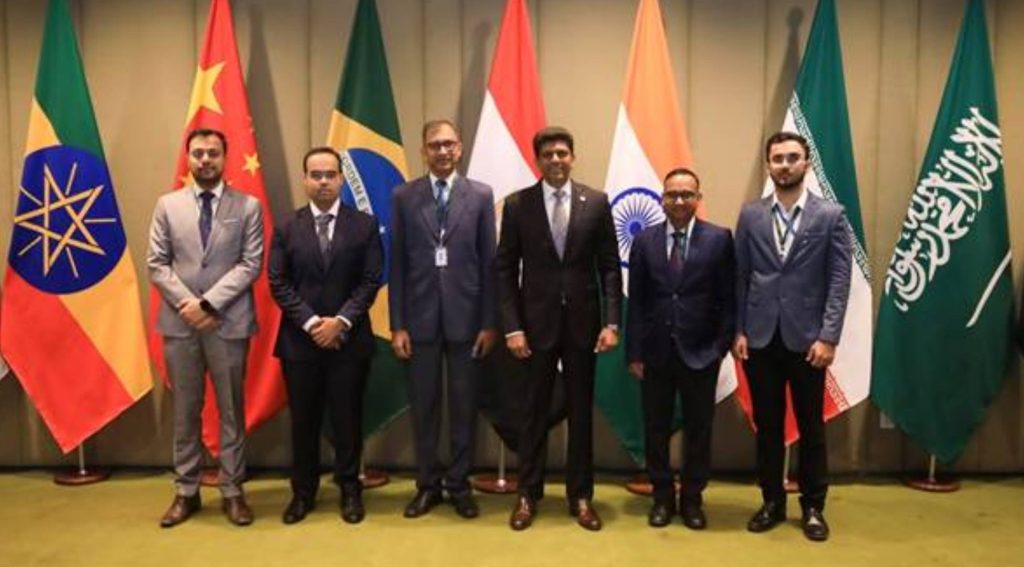India reiterated its commitment to inclusive and sustainable digital transformation at the 11th BRICS Communications Ministers’ Meeting in Brasília, Brazil.
Dr. Pemmasani Chandra Sekhar, Union Minister of State for Communications and Rural Development, highlighted India’s digital public infrastructure (DPI) as a global model for inclusive digital governance and advocating for sustainable and equitable space governance.
He promoted the DPI as a standard for digital government. He highlighted the revolutionary achievements of programs like the Unified Payments Interface (UPI), which currently accounts for 46% of all digital transactions worldwide, and Aadhaar, which has given over 950 million citizens safe digital identities. He said that Prime Minister Narendra Modi’s imaginative leadership in creating a scalable, inclusive, and resilient digital ecosystem is responsible for this digital leap.
Dr. Sekhar urged the BRICS countries to increase cooperation in utilizing digital public infrastructure to promote equitable growth and create robust digital economies. He said that India’s DPI model actively prevents monopolistic behaviors while acting as a stimulus for financial inclusion, good governance, and digital innovation because it is based on open and interoperable platforms.
He highlighted India’s thriving start-up scene, robust digital skills initiatives, and forward-thinking laws like the Data Protection Act and the Telecommunications Act, highlighting the country’s strong digital landscape and stressing the critical importance of user safety and trust in the digital age. He also advocated for increased BRICS collaboration in cybersecurity, data protection, and digital trust while showcasing India’s Sanchar Saathi project, a crucial weapon in the fight against telecom fraud.
He demonstrated India’s Digital Bharat Nidhi initiative, including BharatNet, which connects over 218,000 village councils with optical fiber, demonstrating its digital leadership. With 95% 4G and 80% 5G coverage, India offers universal high-speed connectivity and the lowest data rates globally at just 12 cents per gigabyte.
Addressing space sustainability, Dr. Sekhar underscored that space is now integral to modern digital infrastructure. He detailed India’s critical reforms, including streamlined SATCOM regulations and expanded licensing for mobile and IoT satellite services. He called on BRICS nations to lead global discussions on orbital equity, spectrum governance, and space traffic management, advocating for cooperative approaches to shared orbital resources.
On environmental sustainability, Dr. Sekhar acknowledged the growing climate and e-waste challenges posed by digital expansion, citing alarming projections of 82 billion kilograms of e-waste by 2030. He showcased India’s leadership through initiatives like the Green Development Pact introduced at the G20 Summit in Delhi and the Panchamrit commitments announced at COP-26. He urged BRICS members to adopt circular economy models, embrace green energy in ICT infrastructure, and support global frameworks like the ITU’s Green Digital Action.
Earlier, Dr. Sekhar welcomed the adoption of the Final Declaration, commending the collaborative spirit among BRICS nations and acknowledging the expanded membership’s role in enriching the dialogue. He reiterated India’s belief in BRICS as a collective of co-creators working towards digital equity and resilience, praising Brazil’s leadership and the clarity of vision in the Declaration.













